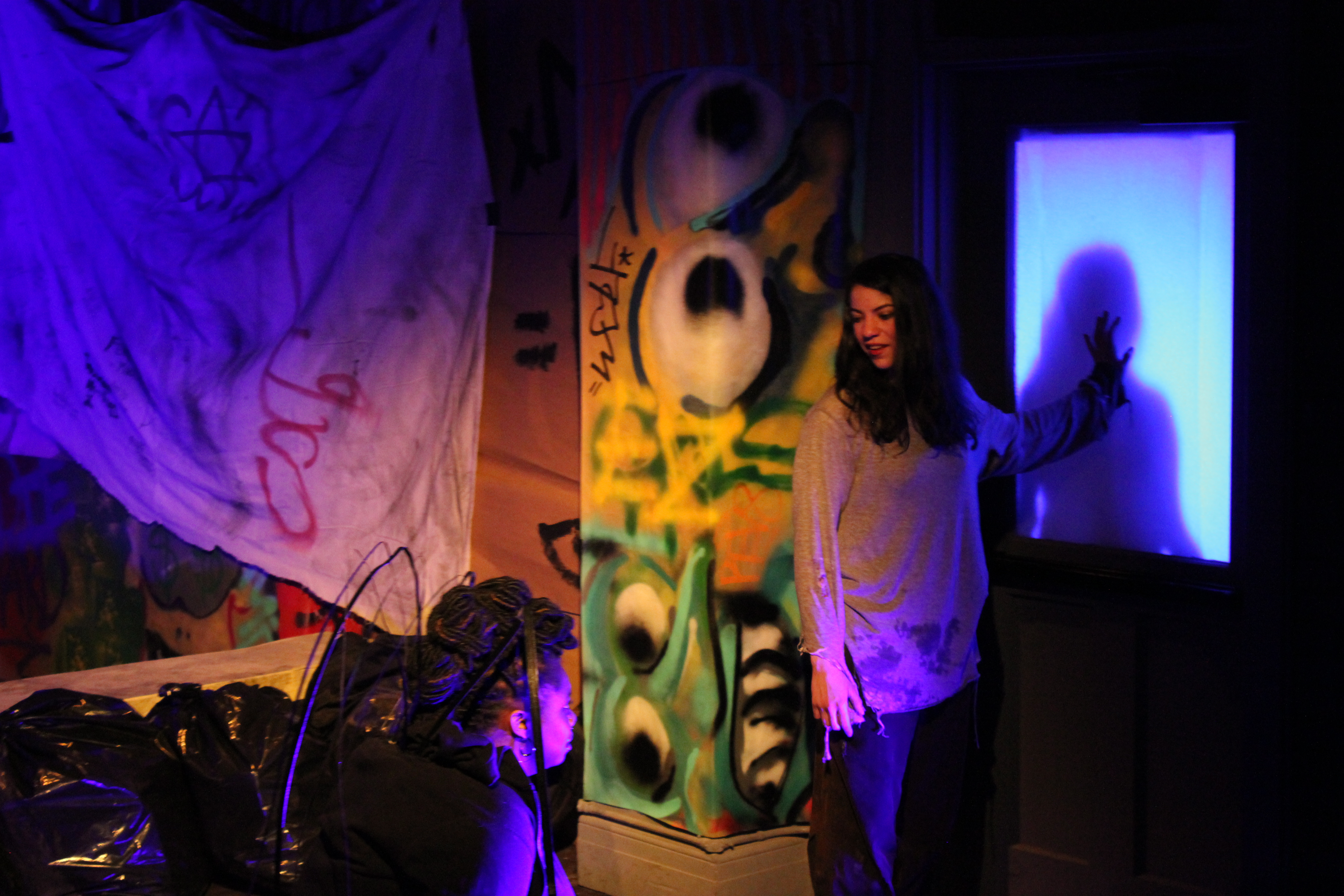Marisol
Satori Lab at Inscape, 815 Seattle Blvd. S., collisiontheater.org. $20–$25 ($10 Mon.). 8 p.m. Thurs.–Sat. & Mon. Ends Feb. 22.
It takes one hell of a production to pull off a scene in which a man gives birth. Unfortunately, this is not one of those productions. By the time The Collision Project’s staging of Jose Rivera’s 1993 Obie award winner arrives at that natal moment, the air has gone out of Marisol. As our eponymous heroine (Carolyn Marie Monroe) reaches beneath the birthing gown worn by her pregnant, lunatic stalker, any magic that might enlighten the scene has left the building.
To be fair, this is a tough script for a brand-new company to pull off, an absurdist allegory that is intentionally difficult to digest. But before it gets too weird, Rivera’s play—directed by Ryan Higgins—does begin in a recognizable world, though one that is quickly warping. It’s the turn of the millennium, and the apocalypse appears nigh: Apples have become extinct; a war on children rages; milk is polluted with salt; and the moon has gone missing.
Despite this, as the world goes to shit around her, the devoutly Catholic copy editor Marisol is trying to keep it together. It helps that she’s protected by a guardian angel (black-clad badass Shermona Mitchell) with magical powers. When the angel appears in the middle of the night, Marisol believes it’ll be a moment of holy conception. Monroe is at her best in this scene, and the play shows real promise. There’s a genuine connection, even love, between the naive Marisol and her woeful protector. But the relationship ends abruptly when the angel abandons her to join a war against the “senile” God who’s causing all the chaos.
As Act 2 begins, it’s clear that war in heaven isn’t going well. Down on the forsaken Earth, Marisol moves further into the fantastic. In a bizarre sort of Wizard of Oz scenario, the now-homeless and wandering Marisol meets a fur-clad aristocrat who’s been beaten for going over her credit limit; a wheelchair-bound burn victim in search of his skin; the neo-Nazi responsible for setting him on fire; and the pregnant Lenny (Ben D. McFadden). She’s actually searching for her friend June (Libby Barnard), but it’s difficult to understand why. The script calls for a tight, even romantic, bond between the two, but in the hands of these performers it doesn’t take. Their reunion, like Lenny’s delivery, has no life to it. Maybe that was the point of this particular staging, but it makes for disappointing theater. As Rivera’s script argues, life is cruel and meaningless, but it would be nice to care a bit more about his characters.
mbaumgarten@seattleweekly.com








